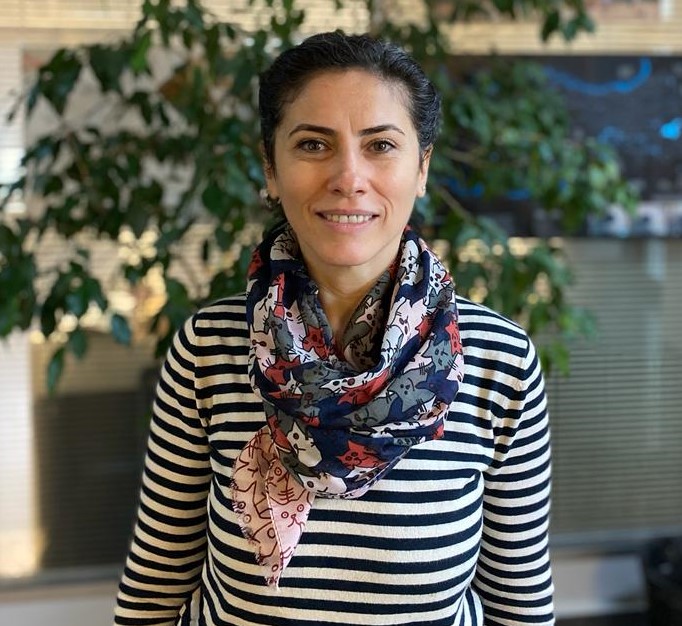As an Alliance meant to foster real change within the European Higher Education, bottom-up processes are essential for EELISA. One example of these actions is the “EELISA Librarians Team” formed to give support to EELISA regarding best practices in Open Science.
In the words of Burcu Bulut, technical services librarian at the Istanbul Technical University: “It is important that, as librarians, we are very connected to EELISA, so we can design information services, support research and education in our universities the best way we can”. In this article, Burcu shares the details of this groundbreaking initiative.
____________
Q.How was the beginning of this initiative and who is involved at this point?
A. Everything started as a very natural process. In April 2021, we saw an e-mail regarding the EELISA InfoDay at ITU. In the weeks following the information day, correspondence began between us about how we would contribute to the project. Then, with the encouragement of our library manager, we started working on the strategy of how to get involved in the project. Also at the beginning of April, we were discussing the restructuring of library services in line with current trends in academia, within the framework of developments in bibliometric studies and increasing educational needs. Then we formed a group of librarians to work on these issues which are now called the ITU EELISA Library Team. We prepared a document expressing the domestic and international goals of the Library and both the ITU-EELISA and ITU-InnoCORE project managers gave us full support. From this point on, our first step was to introduce ourselves to the Libraries of all EELISA members and send an open call for collaboration.
Q. How is this initiative connected to the EELISA Strategic Framework for Open Science practices and EELISA InnoCORE?
A. Open Science (OS) has always been our focus in both internal and international studies. It is also our primary goal to create an Open Science Community to advocate and raise awareness about it within EELISA. So, along with our open call for collaboration, we sent an e-mail outlining where we see ourselves as librarians and our goals within the Alliance. We also shared a live document on Drive to discuss our suggestions and share our contributions. EELISA Project Manager from SSSA, Rossella Raso, offered to bring our initiative to the attention of the EELISA Executive Board so we could create a working group of librarians within the Alliance. At the same time, the ITU EELISA InnoCORE Project manager contacted our library manager and it was decided that the ITU Team for the EELISA InnoCORE Work Package 3 would be represented by the head of the library.
Q. How do you expect this initiative will impact students, academics and staff of the EELISA universities?
A. The emphasis placed by EELISA’s mission on democratizing engineering education, promoting inclusion and diversity within the Alliance leads us to reflect on how we can share, collaborate and contribute as practicing science. To have a group of professionals working on Open Science, and library-related services, means to decide more accurately, to act and implement faster – a group that understands each other well and talk the same language will help build a stronger community. A dedicated group of librarians will facilitate everything for all stakeholders in mentoring and training students and academics to be Open Science practitioners. We can support them on how to create, publish and share their research, data, etc. In addition, this librarians group will guide members on which tools from the Open Science ecosystem can be used within EELISA.
Q. And finally, what are the needs of your initiative at this moment?
A. We need support from all EELISA partners and team members to raise awareness about the initiative. We also need that those who have experience in best practices linked to Open Science and library science share their expertise and knowledge so we can develop programs together. Also, we need academics from all disciplines, decision-makers at all levels of the university administration, and librarians from all institutions to join us so we can create policies and provide tools that support Open Science. This way, we can offer open research environments for our researchers and students and create a culture of openness among all EELISA graduates.

Burcu Bulut received her Ph.D. degree from Ankara University, Department of Information and Records Management in 2011. She joined Istanbul Technical University in 2019 as a technical services librarian and has played an active role in promoting open access as a group member of the Open Access Infrastructure for Research in Europe (OpenAIRE) Project (2011-2016) and Anadolu University Libraries Consortium Open Access and Institutional Repositories Working Group (2012-2016). She is currently a member of ITU EELISA innoCORE WP3 (EELISA Strategic Framework for Open Science Practices) Team. You can reach her here tr.linkedin.com/in/burcubulut/

